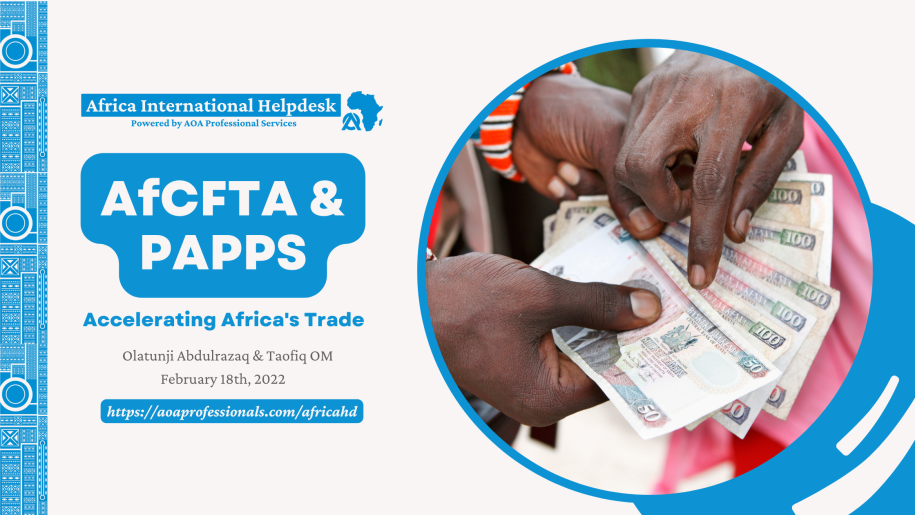The AfCFTA, African Export-Import Bank, and other partners on 13th January officially launched a unified payment system for the African market. This is the Pan-African Payments and Settlements Systems(PAPSS). Its primary goal is to boost Intra-African trade significantly by making cross-border payments less reliant on third party currencies.
PAPSS allows a customer in one African country to pay in their currency, while a seller in another country receives payment in their currency. With PAPSS, this would facilitate the African Continental Free Trade Agreement (AfCFTA) aim to bring together the 54 African countries to trade under a single market with liberalized tariffs and the removal of the non-tariff barriers to cross-border trading.
The commencement of PAPSS would solve reliance on third currencies- US Dollars, Euros and the British Pounds for the clearing and settlement of cross-border payments and transactions which in turn leads to high costs and long transaction times. At the moment, 42 currencies are being spent on the continent and only a couple of those currencies have any value outside the countries where they are tender.
Before PAPSS, for example, a buyer in Nigeria who intends to buy goods from a seller in South Africa will be required to pay the seller in a third currency from outside the continent- either the US dollar, the Euros or the British Pounds, pay the extra charges to have the agreed sum processed and sent to the seller in South Africa and have to wait several days for transactions to clear.
Aside from time constraints, the method of currency conversion adds to the value of doing business and actually, the money has got to leave Africa before being sent back to South Africa. With the start and functioning of PAPSS, the same business would only pay in Nigerian Naira for the goods, while the seller will receive South African Rand.
The PAPSS serves as the clearing, processing and settlement agent in the transaction for MSMEs in Nigeria and other emerging economies facing high import and export expenses, as well as unknown transaction delays due to limited correspondent bank relationships, foreign currency availability, and cross-border transaction rail capacity would be addressed with a commercially viable modern solution in the continent.
In conclusion, Pamela Coke-Hamilton, executive of the International Trade Centre, said:
“In these uncertain times, African countries now have a commercially viable tool which will address a critical barrier for MSMEs to trade competitively. ITC is preparing enterprises to profit from PAPSS, creating new opportunities for growth in cross-border e-commerce and sustainable trade.”
DISCLAIMER:
The material contained in this publication is provided for general information purposes only and does not contain a comprehensive analysis of each item described. Before taking (or not taking) any action, readers should seek professional advice specific to their situation. No liability is accepted for acts or omissions taken in reliance upon the contents of this alert.
AOA Professional Services is an indigenous tax, regulatory and advisory service firm driven by the values of professionalism and partnership. For further information on the subject matter, reach out to our Africa International Helpdesk

